AgriBiz
Kashmir’s only rabbit farm seeks to popularise cuniculture among valleyities
Published
4 years agoon
By
BK Editor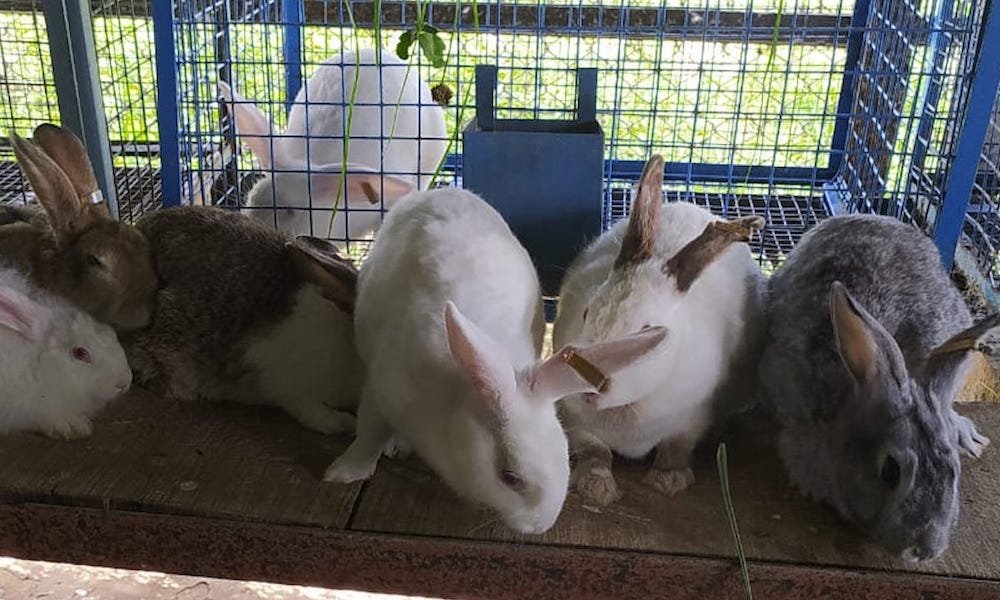
Malik Nisar
Syed Jesarat
Wussan, Baramulla: To popularise rabbit farming for augmenting meat and fur production and providing a healthy alternative to mutton for voracious meat-eaters of Kashmir, the J&K Government established Angora Rabbit Farm in 1979 at the Wussan village of Baramulla district.
Though, the rabbit meat has failed to satiate the taste buds of Kashmiri people as the project did not witness much commercial success. However, due to the recent rising trend of pet keeping in Kashmir, the farm has become a centre of attraction. Rabbit rearing has become the most popular hobby among pet lovers, particularly children, and teenagers.


Presently, seven rabbit species breed in the Angora Rabbit Farm: Californian White, New Zealand White, Angora German, Angora French, Grey Giant, Black Brown and Soviet Chinchilla. Different breeds have different qualities. While the Angora is considered a well-known breed for fur and wool, Grey Giant and others are best known for providing quality meat. Similarly, people prefer to buy the Russian Chinchilla and German Angora for keeping them as pets.
Around 1800-2000 rabbits rear in five sheds of the farm at Wussan. Presently there are 1200 rabbits, both kits and adults, on the farm. These rabbits are available on sale around the year. However, during the winter, the number goes down to 500-600. As the breeding stops during the winter season due to extreme cold.


According to the official website of the Sheep Husbandry Department, the farm was started with the 60 New Zealand White rabbits purchased from Gharsa, Himachal Pradesh. The aim was to popularise the consumption of rabbit meat as a substitute for sheep and goat meat among the general masses and create a new avenue of employment for the youth. While the rabbit meat evinced week response among the public, high demand for rabbit wool and fur could not generate much enthusiasm among the entrepreneurs for establishing their private units. This limited the scope of the farm.
At present, rabbits in Kashmir have only three uses. Youngsters rear them as pets, researchers use them as guinea pigs, and some people with cardiac problems eat them as rabbit meat is considered lean and white with high nutritious value.
However, in recent years rearing them as pets have become very popular across Kashmir. While the cute and fluffy rabbits are liked by one and all, in the traditional homes, they have much more acceptability as compared to dogs and cats, who are mostly considered unclean animals.
“Besides slaughter purpose, we sell rabbits to pet shop owners, as well as, researchers from GMC and SKUAST-K, who try vaccines and drugs on them,” says Dr Ishrat.
Last year the farm revenue from the rabbit sales was Rs 6 lakh. According to the farm officials, the sale figure has grown considerably. “Though from last few years, rabbit rearing as pets is gaining popularity across Kashmir, but we want more and more people to know about the farm,” says Dr Ishrat.
“Rabbit farming is very profitable, and one enjoys doing it. It is a great business idea with huge employment generation potential. Only thing is that we need to create more and more awareness,” he says.


A research scholar of livestock production and management from NDRA, Dr Ishfaq Jamal, writes that there is tremendous scope for poverty alleviation and improving the living standards of small and marginal farmers through the profitable enterprise of cuniculture.
Cuniculture is the agricultural practise of breeding and raising domestic rabbits as livestock for their meat, fur, wool or pelt. “Rabbit fanciers and hobbyists also employ cuniculture for the development and betterment of rabbit breeds and the exhibition of their efforts. Scientists practice cuniculture in the use and management of rabbits as model organisms in research. Cuniculture has been practised all over the world since at least the 5th century.”
According to Dr Ishfaq, there is immense scope for rabbit farming in Kashmir, as the climatic conditions of J&K and Himachal Pradesh are almost similar. The government of HP has promoted rabbit farming along with sheep farming and obtained good results in hilly areas, he writes.
“If properly planned and promoted, rabbit farming can turn into a multi-crore industry soon. There is a need of a proper policy framework, planning as well as collaboration between the Departments of Animal and Sheep Husbandry, agricultural universities and related institutions for framing a composite policy to promote rabbit farming,” says Dr Ishfaq in a newspaper column.
Feeding and rearing of rabbits at Wussan Farm
When it comes to the feeding of rabbits at the Wussan Farm, proper care is taken. The rabbits are fed with nutritious food such as greens, turnips, carrots, cabbage leaves. Rabbits drink clean drinking water twice a day. The feeding items are different for the winter and summer seasons. In the summer season, only greens are given to rabbits, while in the winter season, chopped vegetables are provided as well. Most of the food items are grown within the farm area itself such as radish and carrots. Rabbits are also fed with pellets in addition to greens and vegetables. Kits are fed half of what adults are given.
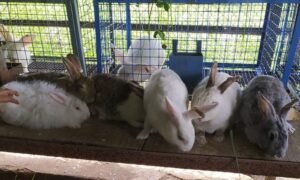

“We have an agriculture farm here as well where we grow fodder for rabbits,” says Dr Irfan Magray, the farm manager and veterinary doctor.
Random eating is avoided for the proper growth and good health of the rabbit.
Rabbits are reared mainly for three purposes – domestication as pets, research models (guinea pigs) and consumption.
“Rabbits can produce many kits at a time unlike other animals, which is what makes it very good economically,” says Dr Irfan Magray.
Rabbit is known for its fast multiplication, short gestation period of about 32 days and a litter size of about 6-8. So out of a small unit one can have 4-5 crops annually, so from a small unit, one can get hundreds of kindlings per year. Also, its constant state of reproduction, rapid growth and early maturity adds to its high biological potential.
“We usually keep the parental stock with us and give the kits,” he adds.
Young single rabbits are sold within the price range from ₹200 – ₹800, depends upon the breed, where Grey Giant, Black Brown, Soviet Chinchilla costs ₹200 per rabbit and New Zealand White, California White sells for ₹300 per rabbit whereas Angora breed is sold at ₹500 per piece. The pair is sold from 1000 or above.
Rabbits are sold to customers which in turn start their venture at a smaller level for rearing purposes. “I visit the farm often and take rabbits for my venture,” says Gulam Nabi Sofi from Khaag, Budgam. “For a pet lover, this is the best place to visit,” he adds.
“The farm has different breeds and I had taken many rabbits from them, I keep rabbits as pets,” says another customer from Srinagar. “The farm has maintained all sort of hygiene practices and every staff member is cooperative,” he further says.
“The best sellers among the rabbits have always been Angora rabbits, as they are famous for their wool, which is considered second best after pashmina,” says Dr Ishrat.
The life expectancy of a rabbit is 5-6 years. “The mortality rate of the rabbits has come down from 10-12% to 4.5% since last three years,” he adds.
Around 18 employees are working on the farm: 10 technical staff and eight helpers. Each one of them is strictly looking at the management of the farm and rabbit farming.


“This farm is only of its kind in the whole J&K,” says Dr Ishrat.
Talking about the plan ahead, Dr Ishrat says now they want to open units of the farm at various parts to avoid third-party interface. “We have sent a request to the higher authority to open up the farm units at different places where we have high acceptability of the rabbits,” says Dr Ishrat.
In addition to this, the rabbit farm intends to do training programmes and attract more youth towards rabbit farming. The farm display, its stall at Kisan Melas as well. “We can also help the\youth by giving them employment and also technical know-how free of cost,” says Dr Ishrat.
“The rabbit farming has a great scope in the Valley but awareness is needed, we do as much publicity as we can.”
“The funds the farm gets are not sufficient for infrastructure,” Dr Ishrat. “We want to attract more customers, but we lack funds,” he adds.
The medical supervision of the rabbits is planned in accordance with the help they need. “Usually, we do flock treatment but if someone needs individual treatment, we give full attention to it, we give them anti cognizant drugs with water if needed,” says Dr Irfan.
Rabbit farming is a lucrative business, which demands attention from the government as well as the individual level.
You may like
-




RBI penalises Central Cooperative Banks Baramulla, Anantnag for violations
-




Editorial | J&K Budget 2025-26 – A Balancing Act
-




CII J&K Organizes Health Conclave 2024
-

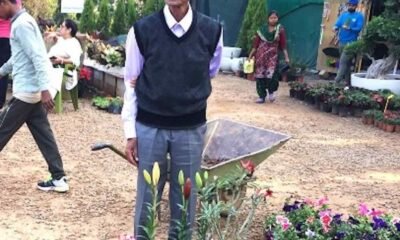


Kya kuchh tha jiske kehne ko: A tribute to father
-

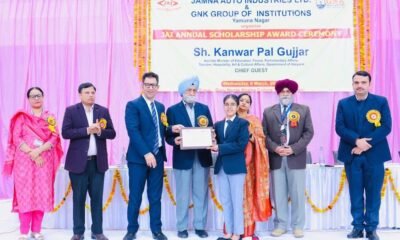


GNK hosts JAI scholarship distribution function
-




Administrative Council approves J&K Startup Policy 2024-27
AgriBiz
Building FPO Leaders: SKUAST-K, MANAGE Hyderabad complete trainers’ training
Published
4 months agoon
November 30, 2024By
BK Editor

BK News
Srinagar: The month-long Training of Trainers (ToT) program for Farmer Producer Organizations (FPOs), organised by Sher-e-Kashmir University of Agricultural Sciences and Technology of Kashmir (SKUAST-K) and Agriculture Department in collaboration with the National Institute of Agricultural Extension Management (MANAGE), Hyderabad, concluded successfully, marking a major milestone in capacity building for agricultural transformation in Jammu and Kashmir.
The program brought together some of India’s foremost agricultural business experts to train nearly 300 resource persons in eight batches. Designed under SKUAST-K’s HADP Project 20: Innovative Approaches for Promoting Agriculture in J&K, the initiative aimed to strengthen farmer organizations such as FPOs, Self-Help Groups (SHGs), Common Interest Groups (CIGs), and Primary Agricultural Credit Societies (PACS). The program covered topics like FPO formation, business planning, supply chain management, and market linkages.


Vice-Chancellor SKUAST-K, Prof Nazir Ahmad Ganai, who actively monitored the program, in his message stressed the importance of FPOs in transitioning J&K from subsistence farming to sustainable commercial agriculture. Drawing comparisons with advanced economies, he highlighted the urgent need to increase agricultural processing, which currently stands at just 2% in the region.
Prof Masood Saleem Mir, Associate Director Research and Principal Investigator of the HADP Innovative Extension Project, elaborated on the program’s objectives and logistics. “This training was designed to address the unique challenges faced by farmer organizations in J&K. By equipping participants with technical, managerial, and entrepreneurial skills, we aim to create a ripple effect where these trainers will mentor and guide farmers across the region,” he said. Prof Mir further highlighted the strategic collaboration with MANAGE Hyderabad and the Agriculture Production Department, which ensured the program’s success.
“Our aim is not just to train individuals but to build a system where farmers can access consistent support and practical solutions for their challenges. The comprehensive curriculum, covering everything from FPO formation to business sustainability, is tailored to meet the region’s specific needs,” Prof. Mir added.
The training, facilitated by MANAGE Hyderabad, featured country’s top expert in FPO formation, business planning and supply chain management. These experts provided strategic insights into FPO management, business sustainability, and innovative mobilization techniques, ensuring practical outcomes for the participants.
Participants praised the program for its practical orientation, stating that it had demystified the complexities of building successful FPOs. Many called for follow-up sessions focused on developing tailored, commodity-based business plans to enhance FPO effectiveness.
This initiative aligns with SKUAST-K’s vision to make J&K a model bioeconomy in the country, fostering a resilient and sustainable agricultural landscape. The university plans to replicate the program in the Jammu division, further extending its impact.
The event concluded with the distribution of certificates to the trainees and a pledge by all stakeholders to work collectively towards uplifting the region’s farming community.
AgriBiz
SKUAST-K innovator clinches Rs5lakh RKVY Raftaar grant
Published
1 year agoon
January 9, 2024By
BK Editor

BK News
Srinagar: An innovator from Sher-e-Kashmir University of Agricultural Sciences and Technology of Kashmir, Shaista Khan, has bagged Rs5lakh RKVY Raftaar grant for Herbodyne, an herbal toothpaste based on an indigenous Kashmir plant.
Presently pursuing PhD from the SKUAST-K’s Faculty of Forestry, Benhama campus has been awarded the grant under RKVY RAFTAAR, MANAGE, Hyderabad from Ministry of Agriculture and Farmer’s Welfare, Govt. of India. She was mentored by Prof TH Masoodi, Registrar SKUAST-K, Prof Imtiyaz Murtaza, Division of Basic Sciences and Humanities, Prof Parvez Ahmad Sofi, Prof. and Head, Div of FPU and Dr Nazir Ahmad Pala, Div of Silviculture and Agroforestry, Faculty of Forestry.
On talking to her, Shaista Khan says that it happened only due to the mentorship and support that she received from the mentors and the Faculty of Forestry, SKUAST-K. She expresses heartfelt gratitude to Prof Nazir Ahmad Ganai, VC SKUAST-K and Prof. T.H. Masoodi, Registrar SKUAST-K for providing an inspirational, motivational and unwavering support system. She also expresses her sincere thanks to her mentors Prof. T. H. Masoodi Registrar, SKUAST-K, Prof Imtiyaz Murtaza, Prof. Parvez A Sofi and Dr Nazir A Pala for their effective mentorship and for inspiring her with this innovative idea. She is also grateful to Dr Akhlaq Amin Wani, Prof.& Head, Div. of Natural Resource Management, Dr JA Mugloo, Head, KVK, Malangpora and Dr GM Bhat, Prof & Head, Silviculture and Agroforestry and other members of the faculty for their valuable support and encouragement. In addition, she says that she is very thankful to the NAHEP, SKUAST for providing financial assistance and SKIIE, SKUAST-K for their support and guidance.
AgriBiz
Vegetable Science: A Potential Area for Startups in J&K
Published
1 year agoon
December 14, 2023By
BK Editor



Dr Asima Amin Dr Baseerat Afroza Naveed Hamid
In a world grappling with the challenges of population growth, environmental sustainability, and a shifting focus towards healthier lifestyles, the potential of vegetable science in startups emerges as a beacon of transformative innovation. The intersection of agriculture, technology, and health has given rise to a myriad of opportunities for entrepreneurs to revolutionize the way we cultivate, consume, and benefit from vegetables.
As global consciousness veers towards sustainable practices and healthier food choices, startups delving into vegetable science are poised to play a pivotal role in shaping the future of our food systems. This introduction seeks to explore the diverse avenues where startups can harness the power of vegetable science to address pressing issues such as food security, nutritional health, and environmental impact.
From leveraging cutting-edge technologies in agriculture to developing novel plant-based food products, the potential applications of vegetable science are vast and impactful. This exploration encompasses not only the traditional aspects of farming and crop management but also delves into the realms of biotechnology, food technology and sustainable business practices.
We will delve into specific domains where startups can thrive, exploring how innovation in vegetable science can drive change in agribusiness, food technology, health and wellness, sustainability, and more. The goal is to unveil the untapped potential that lies within the realm of vegetable science, inspiring entrepreneurs, investors, and stakeholders to contribute to a more sustainable, nutritious, and equitable future.
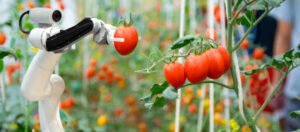

As we embark on this journey through the fertile landscape of vegetable science in startups, envision a world where the humble vegetable becomes a catalyst for transformative change, not only in our diets but in the very fabric of how we approach agriculture, technology, and the well-being of our planet.
STARTUP AREAS
Vegetable science can play a significant role in startups across various sectors, ranging from agriculture and food technology to health and sustainability. Here are some potential areas where vegetable science can contribute to startup innovations:
-
Ag-Tech Startups:
- Precision Farming: Utilize technology, sensors and data analytics to optimize vegetable cultivation, ensuring efficient resource use and higher yields.
- Vertical Farming: Develop indoor farming solutions using controlled environments, allowing year-round vegetable production in urban areas.
- Biotechnology: Explore genetic modification and breeding techniques to enhance the nutritional content, disease resistance,and overall quality of vegetables.
-
Food Technology:
- Plant-Based Alternatives: Create innovative plant-based products using vegetables to meet the growing demand for vegetarian and vegan options.
- Food Preservation: Develop technologies for extending the shelf life of vegetables, reducing food waste, and ensuring freshness during transportation.
- Nutritional Enhancement: Explore methods to fortify vegetables with additional nutrients to address specific health concerns.
-
Health and Wellness:
- Functional Foods: Develop vegetable-based products with specific health benefits, such as anti-inflammatory, antioxidant or immune-boosting properties.
- Nutraceuticals: Investigate the medicinal properties of vegetables and create supplements or health products based on their natural compounds.
-
Sustainability:
- Circular Economy: Implement sustainable practices in vegetable production, such as recycling agricultural waste, utilizing organic fertilizers, and adopting eco-friendly packaging.
- Zero-Waste Solutions: Develop technologies to utilize every part of vegetables, minimizing waste and creating by-products for various applications.
-
Smart Farming and IoT:
- Smart Sensors: Integrate sensors to monitor soil conditions, water levels, and plant health, allowing farmers to make data-driven decisions for optimized crop management.
- IoT in Supply Chain: Implement IoT technologies to track and monitor vegetables throughout the supply chain, ensuring quality, reducing losses, and enhancing traceability.
-
Education and Consulting:
- Agribusiness Consulting: Startups can provide consultancy services to farmers on adopting modern vegetable cultivation techniques, sustainable practices, and technology integration.
- Educational Platforms: Develop online platforms to educate farmers, entrepreneurs, and consumers about the latest advancements in vegetable science, sustainable agriculture, and healthy eating.
-
Community and Social Impact:
- Community Gardens: Startups can facilitate community-based vegetable gardens, promoting local produce, community engagement, and sustainable agriculture practices.
- Social Enterprises: Combine vegetable science with social impact by addressing issues like food insecurity, promoting fair trade, and supporting local farmers.
IMPACT OF STARTUPS IN VEGETABLE SCIENCE
The potential of vegetable science in startups offers a range of benefits that extend beyond economic success. These ventures can positively impact various sectors and address pressing global challenges. Here are some key benefits:
-
Sustainable Agriculture:
- Resource Efficiency: Startups can develop technologies and practices that optimize resource use, such as water, fertilizers, and land, contributing to sustainable and environmentally friendly agriculture.
- Reduced Environmental Impact: By promoting organic farming, minimizing chemical pesticide use, and adopting eco-friendly practices, vegetable science startups can contribute to reducing the environmental footprint of agriculture.
-
Innovation in Crop Management:
- Increased Yields: Precision farming technologies and genetic modifications can lead to higher crop yields, addressing the growing demand for food in a world with an expanding population.
- Disease Resistance: Genetic modifications can enhance the resistance of vegetables to pests and diseases, reducing the reliance on chemical pesticides and promoting healthier crops.
-
Health and Nutrition:
- Improved Nutritional Content: Biotechnological advancements can be harnessed to enhance the nutritional content of vegetables, providing consumers with healthier and more nutrient-rich food options.
- Functional Foods: Startups focusing on functional foods can contribute to improved public health by developing vegetable-based products with specific health benefits.
-
Economic Opportunities:
- Job Creation: The growth of vegetable science startups can lead to job creation across various sectors, including agriculture, technology, research, and product development.
- Market Expansion: Innovations in vegetable-based products can open up new markets and cater to the increasing demand for sustainable and plant-based alternatives.
-
Food Security and Accessibility:
- Year-Round Production: Vertical farming and controlled environment agriculture enable year-round vegetable production, reducing dependence on seasonal harvests and improving food security.
- Localized Farming: Community-based initiatives and startups focused on local farming contribute to localized food production, reducing the need for extensive transportation and storage.
-
Technological Advancements:
- Smart Farming: Integration of technology in agriculture, such as smart sensors and IoT devices, leads to more efficient and data-driven farming practices, improving overall productivity.
- Traceability and Transparency: Technologies for supply chain traceability enhance transparency in the food production process, building consumer trust and meeting the demand for ethically sourced products.
-
Community Engagement and Social Impact:
- Community Empowerment: Initiatives like community gardens and social enterprises create opportunities for community engagement, fostering a sense of empowerment and ownership among local populations.
- Addressing Food Insecurity: Socially focused startups can play a role in addressing food insecurity by promoting sustainable and affordable vegetable production methods.
-
Education and Awareness:
- Knowledge Dissemination: Educational platforms and consulting services contribute to disseminating knowledge about sustainable agriculture practices, technology adoption, and healthy eating habits.
- Empowering Farmers: Agribusiness consulting services empower farmers with the knowledge and tools to adopt modern practices, improving their livelihoods and the sustainability of their operations.
Conclusion
The potential of vegetable science in startups holds tremendous promise and presents exciting opportunities for innovation, sustainability, and societal impact. As the world grapples with challenges such as food security, environmental sustainability, and public health, leveraging the power of vegetable science can pave the way for transformative solutions.
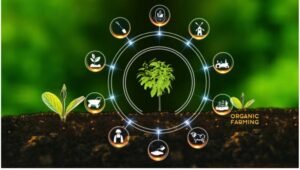

Startups focusing on vegetable science can contribute significantly to agricultural advancements by developing resilient and high-yielding vegetable varieties through breeding techniques, genetic engineering and precision agriculture. This not only addresses global food demand but also aids in the conservation of resources, reduction of environmental impact, and mitigation of climate change.
Furthermore, the integration of cutting-edge technologies, such as artificial intelligence, robotics, and data analytics, into vegetable science can enhance crop monitoring, optimize resource utilization, and streamline supply chain processes. This not only increases efficiency but also opens new avenues for automation and smart farming practices.
The nutritional value of vegetables also plays a crucial role in promoting public health and wellness. Startups can explore innovative approaches to enhance the nutritional content of vegetables, develop functional foods, or create new plant-based products to meet the growing demand for healthy and sustainable diets.
Moreover, the rise of alternative protein sources, including plant-based proteins derived from vegetables, presents a unique opportunity for startups to contribute to the burgeoning market of sustainable protein options. By developing novel processing techniques and improving the taste and texture of plant-based products, these startups can cater to the increasing consumer preference for environmentally friendly and ethical food choices.
In Nutshell, the convergence of vegetable science, technology, and entrepreneurship holds the potential to revolutionize the agriculture and food industry. Startups that embrace this intersection can not only drive economic growth but also make significant contributions to addressing some of the most pressing challenges facing our planet. As the world continues to recognize the importance of sustainable and nutritious food systems, vegetable science startups stand at the forefront of creating a more resilient, efficient, and healthier future for all.
SKUAST K under the ambit of SKUAST K Innovation, Incubation & Entrepreneurship Centre is always ready to support new young minds or budding entrepreneurs who wish to start their enterprises or have some novel or great ideas to take it forward to convert them into minimum viable products or technologies in vegetable science field can come and take advantage of this Centre situated in SKUAST K main campus Shalimar.
The authors are faculty at SKUAST-K



RBI penalises Central Cooperative Banks Baramulla, Anantnag for violations



Editorial | J&K Budget 2025-26 – A Balancing Act


Building FPO Leaders: SKUAST-K, MANAGE Hyderabad complete trainers’ training


CII J&K Organizes Health Conclave 2024


SKUAST-K to hold mega Science Summit on Aug 23-24


Haryana Biodiversity Board commemorates International Biodiversity Day at GNK Group Of Institutions


Kya kuchh tha jiske kehne ko: A tribute to father


GNK hosts JAI scholarship distribution function


Administrative Council approves J&K Startup Policy 2024-27


How to begin investing



Editorial | J&K Budget 2025-26 – A Balancing Act



RBI penalises Central Cooperative Banks Baramulla, Anantnag for violations
Trending
-

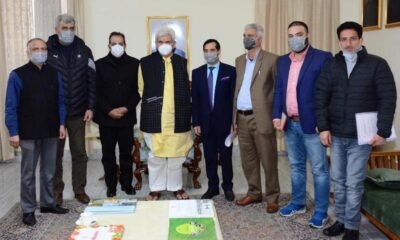

 Industry4 years ago
Industry4 years agoFCIK hails LG Sinha for creating entrepreneur-friendly industrial ecosystem
-



 Economy2 years ago
Economy2 years agoGlobal eCommerce boom and local traders of Kashmir
-

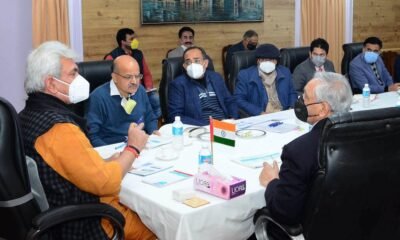

 Energy4 years ago
Energy4 years agoLt Governor discusses J&K power scenario with experts
-

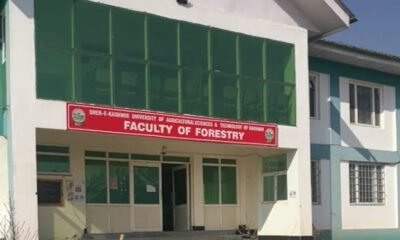

 Infra4 years ago
Infra4 years agoSKUAST-K bags EU project for urban green infrastructure
-

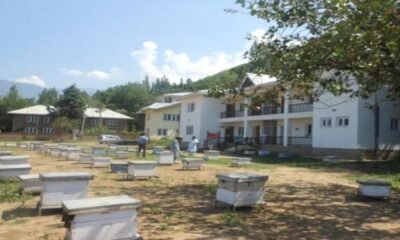

 AgriBiz4 years ago
AgriBiz4 years agoSKUAST-K to set up 3 honey testing labs in Kashmir
-



 Jobs4 years ago
Jobs4 years agoJ&K Govt holds Industry Connect Meet-Himayat 2020
-

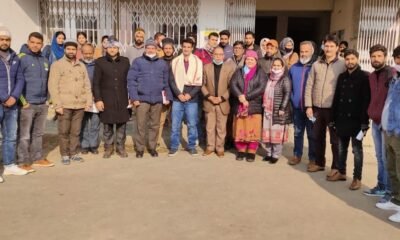

 Careers4 years ago
Careers4 years agoSKUAST-K holds career counselling at Wadura campus
-



 Industry4 years ago
Industry4 years agoImran Murtaza takes oath as president Industrial Association Khunmoh

